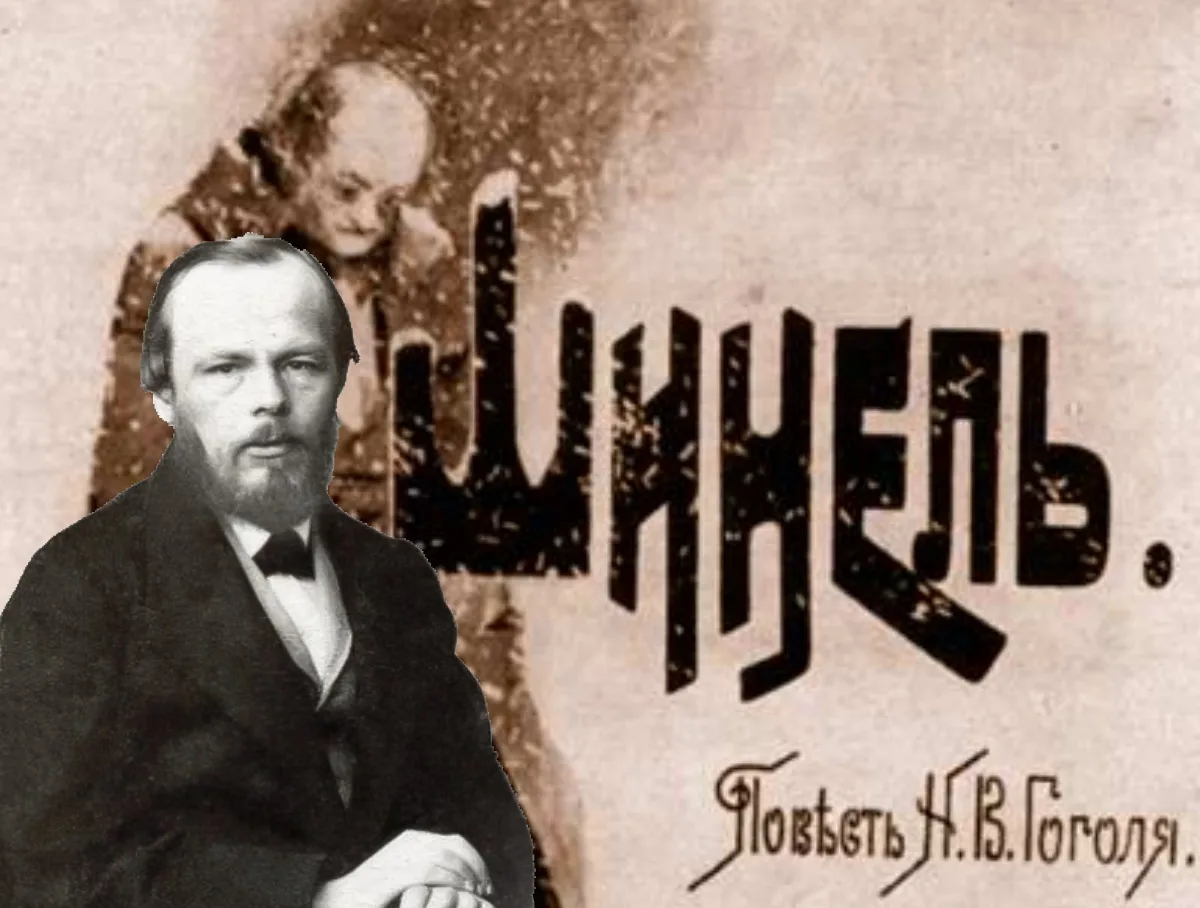It is believed that one of the most famous phrases about Russian literature came from the pen of the great writer. We checked whether this statement really belongs to Dostoevsky.
Nikolai Gogol's story "The Overcoat" became one of the first works in which the image of a little man was revealed - a phenomenon that would later become iconic for Russian literature of the 19th and early 20th centuries. This influence was at one time described by a short but succinct description “We all came out of Gogol’s “Overcoat”,” which is traditionally attributed to Fyodor Mikhailovich Dostoevsky. You can easily verify the latter by visiting resources such as Radio Liberty, "RIA Novosti", "Rossiyskaya Gazeta", museum website "Gogol's House", after reading the biographical book of Evgeny Solovyov "Dostoevsky", essay by Georgy Adamovich "Blok's Legacy", as well as the famous novel by Veniamin Kaverin "Two Captains". This attribution is also popular in the West - right up to the authoritative encyclopedia Britannica.
There is no need to try to find the phrase you are looking for in the works of Dostoevsky himself - it is not there. Of course, Fyodor Mikhailovich could not ignore the epoch-making “Overcoat” for its time. In his first story "Poor people", written under the strong influence of Gogol, the main character Makar Devushkin, having read this work, recognizes himself in Akaki Akakievich and is indignant: “And why write this? And what is it for? <…> But this is a malicious book, Varenka; this is simply implausible, because it cannot happen that there is such an official. But after something like this, you have to complain, Varenka, formally complain.” So Dostoevsky himself, to some extent, “emerged from the Overcoat.” However, we are interested in where the attribution of this quote to him came from.
In some literary texts TBC, that the quote came to us thanks to the French writer and literary historian Eugene-Melchior de Vogüe. In 1877–1882, de Vogüe worked in St. Petersburg as secretary of the French embassy and was closely acquainted with many Russian writers. The main impetus for studying this version was article prominent Soviet textual critic Solomon Racer, published in the journal “Questions of Literature” in 1968. In it, the author notes that Vogüe's diary records three meetings with Dostoevsky in 1879 and 1880, but does not contain any mention of Dostoevsky's creative ties with Gogol.
Nevertheless, it was Eugene-Melchior de Vogüet, judging by all the evidence with which Racer agrees, who introduced the general public to the phrase, which soon became a catchphrase. It all started with articles about Dostoevsky from the series “Modern Russian Writers”, published in the magazine Revue des Deux Mondes (“Review of Two Worlds”) in 1885. In it de Vogüe writes:

Translation: “True, Gogol asked this theme in a story entitled “The Overcoat.” “We all came out of Gogol’s “The Overcoat”,” Russian writers rightly say; but Dostoevsky replaced the irony of his teacher with a feeling that touches us.” As you can see, there is no direct statement here that Dostoevsky said the quote, only the abstract “Russian writers.” There you can also find a statement from Vogüe himself: “Between 1840 and 1850, all three (Turgenev, Tolstoy and Dostoevsky - Author’s note) came out of Gogol, the creator of realism.”
In the same 1885 another one was published article by Vogüe from the series “Modern Russian Writers” - this time about Nikolai Vasilyevich Gogol. Here's what it said:

Translation: “The more I read Russians, the more I understand how right one of them, closely connected with the literary history of the last forty years, was when he told me: “We all came out of Gogol’s “The Overcoat.” If we take, for example, Dostoevsky, then the continuity is obvious: the terrifying novelist is already fully present in his first book, “Poor People,” and “Poor People” is present in embryo in “The Overcoat.” A year later, the article was included in Vogüe's book "Russian novel".
As we see, in the second case, the Frenchman narrows the authorship of the quote to one specific writer, but does not name him. Vogüe mentions Dostoevsky nearby, but it would be somewhat unnatural to first conceal the name of the author, and then unceremoniously reveal it in the next sentence.
And even the presence of a completely correct translation of Vogyuet’s book into Russian (1887) did not prevent the writer Evgeniy Solovyov from his biographies of Dostoevsky from the ZhZL series, put a phrase directly into Dostoevsky’s mouth: ““We all came out of Gogol’s “Overcoat”,” he said, and with this clearly expressed sympathy for the humiliated and insulted, his literary activity began.” It is Solovyov who seems to hold the palm in attributing that quote to Dostoevsky, while literary scholars have several candidates.
1. Actually, Fyodor Mikhailovich Dostoevsky. This version has arguments both for and against. Dostoevsky really began literary activity about 40 years before Vogüe’s article - with the same novel “Poor People” in 1846. The downside is the strange wording in the article about Gogol, which we wrote about above.
2. Ivan Sergeevich Turgenev. Supporters of this version lead diary entry of the writer Olga Nikolaevna Smirnova about the conversation between her mother Alexandra Osipovna and Turgenev after the publication of “Fathers and Sons”: “When I. S. Turgenev offended her and Gogol in “Fathers and Sons” ... she laughed heartily and told him: “However, Ivan Sergeevich, after all, you yourself came out, in your own words, from “The Overcoat” Gogol, and from under the watchtower, at the request of the governor’s wife. Your novel chef d’œuvre; your friends the Herzens and company criticize it, and Gogol and the governor’s wife approve...” The first ones more or less noticed by critics Turgenev's works also appeared four decades before Vogüe's article.
3. Dmitry Grigorovich. A writer with whom Vogüe met in St. Petersburg and discussed the history of the publication of Poor People. The definition of “closely connected with the history of literature over the past forty years” suits Grigorovich even better than Dostoevsky and Turgenev, who themselves created this history, and besides, at the time of the publication of the articles they had already been dead for several years, that is, the “last” years have fallen out somewhat. It was about Grigorovich that Vogüe wrote that he “occupies an honorable place in literature” - an epithet that correlates well with the definition above. In addition, it was Grigorovich in “Literary Memoirs” claimed, that in the 1840s the entire “young literary generation of that time,” including himself and Dostoevsky, were strongly influenced by Gogol: “Everyone was equally carried away by Gogol; Almost everything that was written in the narrative genre was a reflection of Gogol’s stories, mainly the story “The Overcoat.”
4. Boleslav Markevich. Several facts speak in his favor. Firstly, in the work created during Vogüe’s lifetime (and, possibly, agreed with him) English translation in his “Russian Novel” the author of the phrase is called “a now deceased dignitary and writer, now deceased.” The Russian writer, chamberlain and actual state councilor, who died in 1884, fits this definition almost perfectly, unlike the above-mentioned colleagues. Markevich, nicknamed “literary official,” actually met Vogüet, and later, in an obituary on Markevich’s death, the Frenchman called him “associated for a quarter of a century with all literary battles.” Notice the rhyme "bound" - "bound" in the two quotes. At the same time, it would be quite understandable for Vogüe not to directly name Markevich, since he was caught taking a bribe in 1875 and tarnished his reputation.
5. Finally, historian of quotations Konstantin Dushenko notes that the formula “to come out of something / someone” was unknown in Russian at that time, but used in France. Note that many years later, in 1899, in one of his articles, Vogüe for the first time attributed phrase to a certain “great Russian novelist,” which confused the cards for all future researchers. Taking all the circumstances into account, it is possible that Vogüe himself came up with the quote, and then decided to popularize it by attributing it to one of the celebrities, but without specifying it, in order to avoid being caught in a lie.
Thus, there is no sufficient basis to assert that the words “We all came out of Gogol’s “Overcoat”” were spoken by Fyodor Mikhailovich Dostoevsky. The person who made this statement public never stated such a thing, and there are several worthy candidates for the role of the author of the quote.
This is not accurate
Read on topic:
Alexander Dolinin. 15 minute read: “The Death of the West and Other Memes”
If you find a spelling or grammatical error, please let us know by highlighting the error text and clicking Ctrl+Enter.






